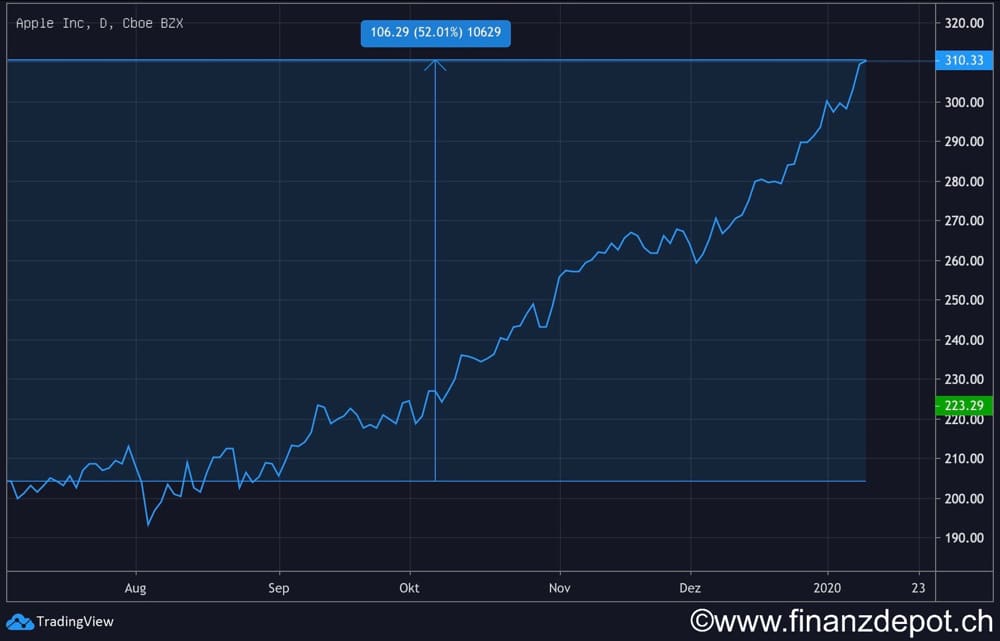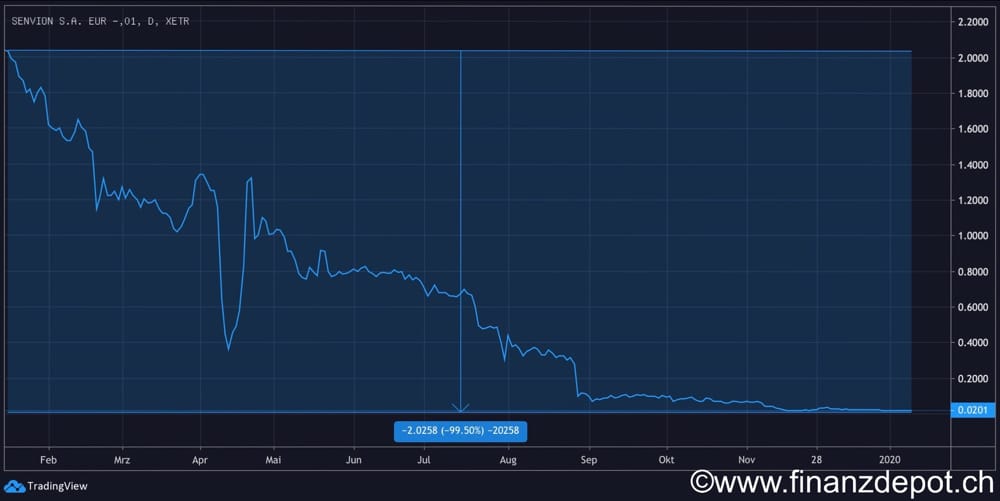Letztes Update: 28. September 2023
Shares are interests in the equity of a stock corporation (AG). So when you buy a share, you acquire a stake in a company, you become a co-owner of a corporation. The share is the share certificate that guarantees (certifies) in writing that you are a co-owner (shareholder) of the company in question.
In the past, these were really still papers that were physically transferred from the seller to the buyer. Today, all this is done electronically, which has significantly reduced trading fees.
As a co-owner, you are directly affected by the success – or failure – of a company. Here are some examples:
Dividend
- If the company’s business is doing well, the co-owners (that’s you) may receive a share of the profits per share (called a dividend)

The dividend in the Apple share example was distributed four times in 2019 and will be credited to you automatically. In February, the dividend was $0.73 per share. In May, August and November, the dividend was USD 0.77 each. So you would have received 3.04 USD for this one share. Whereas not the entire amount would have ended up in your account because your broker deducts the withholding tax directly. This varies depending on the country of origin of the share.
The amount of the dividend is independent of the share price. If the company has had a bad financial year, it is also possible that no dividend will be paid. Not all public companies pay dividends.
Price increase
- When share prices rise, you can sell your share in the company at a profit

The price of a listed share results from supply and demand and is determined on a stock exchange.
The share price rises when many investors think that the company has a promising future.
In our example – again the Apple stock – you would have bought the stock at $204.04 and sold it after one year at $310.33. You would have made 106.29 USD or 52% profit.
This calculation does not include the fees you pay to your broker. You should always keep an eye on the amount of fees, as they can significantly reduce your return.
- In the event of the company’s insolvency, the share usually becomes worthless and you can lose all the capital you have invested in the share.

As you can see from this example, it can also go down quite a bit. In the example on the left you can see the stock market price of Senvion AG of the last year. This company develops, produces and sells wind turbines.
So you should be aware that there are risks involved in investing in the stock market. That’s exactly why the interest on your savings account is so low. On the other hand, the risks of losing your money with a savings account are also very low. With shares, the risk is higher but so is the potential profit.
When you buy a stock on the stock exchange, the money does not go to the corporation, but to the seller of the stock.
If a corporation issues new shares to raise capital, the money from your purchase goes directly to the corporation. Also in an IPO (you will also often read of IPO (Initial Public Offering)), a corporation raises new financial resources by listing on an organized capital market (stock exchange). However, you will encounter both rather rarely and should not confuse you further.
The next article is about ETFs. One ETF contained several shares, so the risk is minimized.
Transparency and disclaimer
I was not paid by anyone for this blog post, it reflects my subjective opinion.
If you open accounts or business relationships, order products or services through my links and codes, I may receive a commission for doing so. However, you will not suffer any disadvantages such as higher prices or the like. The terms and conditions of the respective providers apply. Affiliate links are marked with a *.
Investments are associated with risks which, in the worst case, can lead to the loss of the capital invested.
All publications, i.e. reports, presentations, notices as well as contributions to blogs on this website (“Publications”) are for information purposes only and do not constitute a trading recommendation with regard to the purchase or sale of securities. The publications merely reflect my opinion. Despite careful research, I do not guarantee the accuracy, completeness and timeliness of the information contained in the publications.
